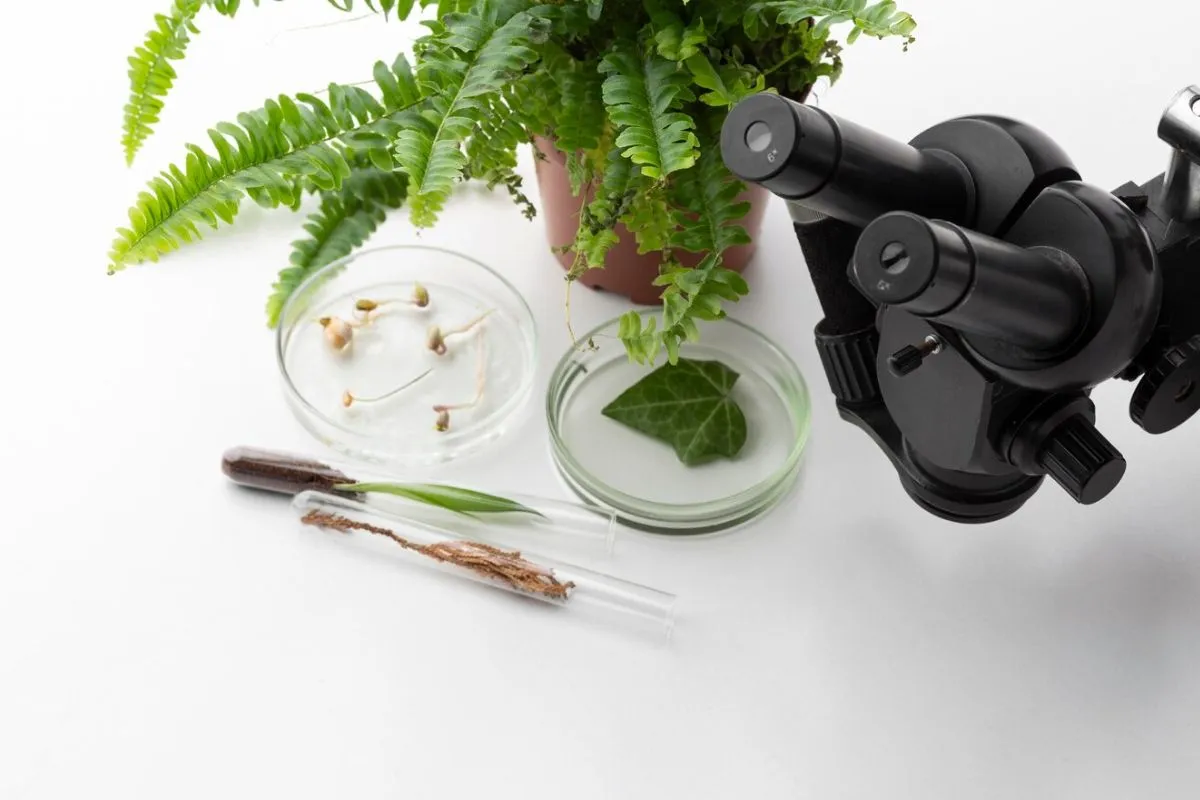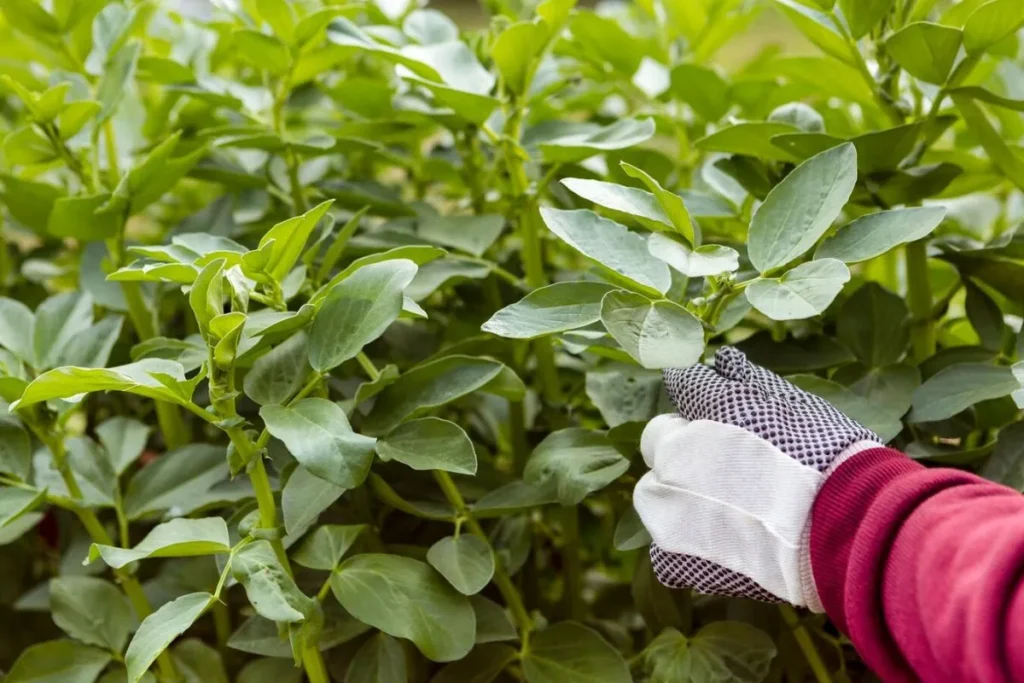Using biotechnology to develop salt-tolerant edible plants is a transformative approach. The rising soil salinity poses a threat to agriculture. Employing biotechnology can address these challenges.
Soil salinity impedes plant growth, diminishing agricultural productivity. Biotechnology, however, offers viable solutions. This article explores strategies and benefits.
By creating salt-tolerant crops, we enhance food security. Understanding these strategies is vital. Let’s delve into the potential and methodologies.
Biotechnology: Revolutionizing Agricultural Practices
Biotechnology involves using living organisms to develop products. It encompasses a range of scientific techniques, including genetic engineering and molecular biology. In agriculture, it aims to improve crop resilience, yield, and nutritional value. Salt-tolerant plants are a key focus, particularly in regions affected by soil salinity.
Genetics plays a pivotal role in this process. Identifying genes responsible for salinity tolerance is crucial for developing resilient crops. Advanced tools like CRISPR and genomic sequencing facilitate this discovery. These genes can be introduced into staple crops, creating varieties that can thrive in challenging environments.
This process enhances the plant’s ability to withstand salt, ensuring better growth and yield. Consequently, it ensures sustenance in saline-prone areas, supporting food security.
Agricultural sustainability is thus achieved, helping to meet the demands of a growing population. Moreover, these innovations contribute to the conservation of arable land.
Developing Salt-Tolerant Edible Plants: Key Strategies
Developing salt-tolerant edible plants involves several strategies. Marker-assisted selection is one method. It identifies and selects desirable traits.
Another approach is genetic modification. Here, specific genes are integrated into the plant’s genome. This confers salt tolerance.
Additionally, genome editing techniques like CRISPR-Cas9 are revolutionary. They allow precise alterations in the plant’s DNA. This method is efficient and reliable.
Marker-Assisted Selection
Marker-assisted selection (MAS) enhances traditional breeding. It uses molecular markers linked to desirable traits. MAS accelerates the breeding process.
With MAS, breeders can screen for salt tolerance early. This reduces the time and resources needed. It’s an effective strategy for increasing crop resilience.
- Identifies specific genetic markers.
- Accelerates breeding cycles.
- Increases likelihood of desired traits.
Genetic Modification
Genetic modification involves introducing foreign DNA. This DNA can be from other plants, bacteria, or synthetic sources. The aim is to enhance salinity tolerance.
For instance, genes from mangrove plants are used. These plants naturally tolerate high salinity. By transferring such genes, crops gain similar abilities.
However, genetic modification is controversial. Concerns about GMO safety and ethics arise. Despite this, it remains a powerful tool in biotechnology.
CRISPR-Cas9 Precision
CRISPR-Cas9 is a cutting-edge tool. It allows precise gene editing. This technique can deactivate or modify specific genes.
For salt-tolerant crops, CRISPR is transformative. Unwanted genes can be knocked out. Beneficial genes can be enhanced.
This precision reduces unintended consequences. It ensures that only desired traits are expressed. Consequently, CRISPR is gaining traction in agriculture.
Benefits of Salt-Tolerant Edible Plants
Using biotechnology to develop salt-tolerant edible plants has numerous benefits. It holds promise for food security. This is crucial in regions with high soil salinity.
Agricultural productivity sees significant improvement. Farmers can grow crops in otherwise unsuitable soils. This expands arable land.
Moreover, salt-tolerant plants require less freshwater. This conserves vital resources. The environmental impact is thus minimized.
Improving Food Security
Food security is a global concern. Climate change and soil degradation worsen this issue. Salinity-tolerant crops can mitigate such effects.
These crops thrive where others fail. They provide a stable food supply. This is essential for vulnerable populations.
Furthermore, it reduces dependency on food imports. Local agriculture is empowered. Communities become more self-reliant.
Enhancing Agricultural Productivity
Soil salinity reduces crop yields. Biotechnology helps counter this challenge. Salt-tolerant plants maintain high productivity levels.
Farmers benefit economically. Higher yields translate to increased income. This boosts rural economies.
Additionally, consistent supply stabilizes markets. Price volatility is reduced. This benefits both producers and consumers.
Environmental Conservation
Traditional crops require copious water. Salt-tolerant varieties need less freshwater. This helps conserve precious water resources.
Furthermore, such crops reduce soil erosion. They contribute to sustainable land use. Environmental degradation is minimized.
Thus, salt-tolerant plants benefit both agriculture and ecosystems. They support sustainable development goals.
Challenges and Considerations
Despite its potential, biotechnology faces challenges. Public acceptance is one hurdle. Skepticism about GMOs persists.
Regulatory frameworks vary globally. Some countries have stringent policies. This hinders biotechnological advancements.
Additionally, ethical considerations arise. Genetic modification provokes philosophical debates. Balancing innovation and ethics is crucial.
Public Perception
The public’s view on GMOs is mixed. Some embrace the technology. Others fear potential risks.
Educating the public is essential. Transparency fosters trust. Addressing misconceptions can enhance acceptance.
Collaboration with stakeholders is key. This includes farmers, consumers, and policymakers. Their support drives biotechnological adoption.
Regulatory Hurdles
Regulations shape biotechnology’s future. Stringent laws can stall progress. Harmonizing global standards is essential.
Regulatory clarity encourages investment. It speeds up product development. Clear guidelines boost confidence.
Policymakers must balance caution and innovation. Sound regulations ensure safety. They also promote scientific advances.
Ethical Considerations
Biotechnology intersects with ethics. Modifying life forms is contentious. Ethical frameworks guide responsible use.
Stakeholder input is vital. Diverse perspectives enrich decision-making. Ethical dialogues shape policies.
Ultimately, ethical biotechnologies benefit all. They promote responsible innovation. This ensures societal acceptance.
Looking Ahead: The Future of Salt-Tolerant Crops
Using biotechnology to develop salt-tolerant edible plants is just the beginning. Advances in genetics offer immense potential.
As techniques evolve, crops will become even more resilient. This will revolutionize agriculture.
Collaboration among scientists, policymakers, and the public is essential. It ensures balanced progress.
Frequently Asked Questions
What is the main goal of developing salt-tolerant edible plants?
The goal is to enhance food security and agricultural productivity in saline-prone areas using biotechnology.
How does genetic modification help in creating salt-tolerant crops?
Genetic modification introduces specific genes into crops, enhancing their ability to withstand salinity.
Why is CRISPR-Cas9 significant in developing salt-tolerant plants?
CRISPR-Cas9 allows precise gene editing, making it effective for developing resilient crops with minimal side effects.
What challenges does biotechnology face in agriculture?
Challenges include public skepticism, varying regulatory frameworks, and ethical considerations regarding GMOs.
How do salt-tolerant plants benefit the environment?
They conserve freshwater, reduce soil erosion, and promote sustainable land use, contributing to environmental conservation.



